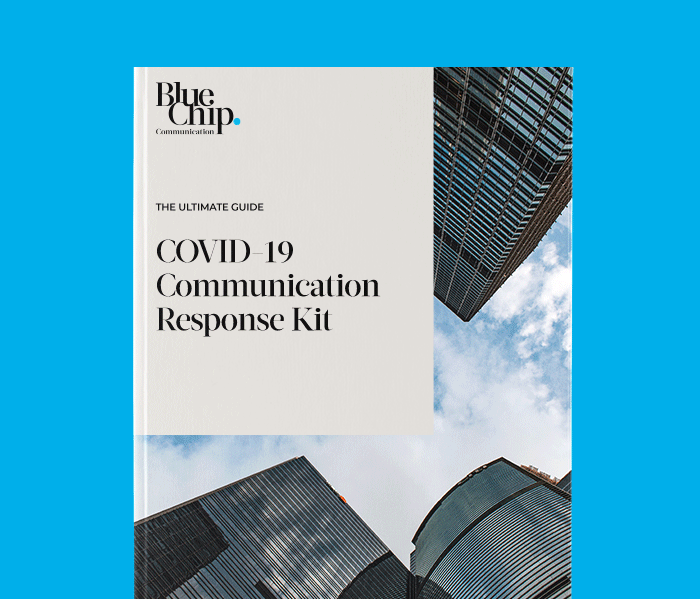Slowing down or putting out a perceptual inferno (a full blown crisis) is no small task. It's far easier to put out the small sport fires before they join up to cause a raging front.
But as the saying goes, 'prevention is better than cure'. Crisis prevention is far preferable to crisis management - particularly given the importance of trust for financial brands. In financial services, as other industries, having a robust crisis communication plan is one of the key preventative measures. An issues management log, or reputation risk register, is also basic but effective essential equipment. Similar to a smoke alarm that saves lives, an issues log that's actively managed can and used save hundreds of millions in lost shareholder value, litigation cost or loss of stakeholder support that flows from serious repuation damage.
In our final episode - #9 of our nine-part series of communication strategies used to slow, halt or reverse a perceptual crisis - we discuss 'Prevention' as a PR strategy for financial services brands.
Video Transcript
Jacqui Maddock: Preventing a financial services crisis turning from a spot fire to an inferno is no small task.
Carden Calder: Yeah, simple conceptually, not easy in execution. So how does it work? Look, you can do this at a reactive, a responsive, or proactive level. The very proactive level involves not only having good issues management capability, but also really thinking long range – three to five years – about the sort of reputation risks you might face and actively working to avoid those or bolster your reputation in the areas where you might be more vulnerable.
The responsive level is entails thinking medium term about what might come up and really actively seeking to manage those things. The reactive approach is more about the things that land on your doorstep, and in my experience most businesses have those. You know in the best-run businesses things go wrong and leaders need to have the capability to respond, and a key part of that capability is managing stakeholder expectations and communicating well.
Jacqui Maddock: Well, the best crisis issues management doesn't have any fingerprints on it or any hand prints. Where have you seen crises that have had the potential to turn into just devastating issues for organisations and companies, stop it in its tracks, where have you seen it done well?
Carden Calder: The best examples have actually been in insurance, over 20 years I've seen insurance fraud or issues happen which have been stopped from becoming really major reputation threatening events and they've been stopped very, very quickly and it usually involves writing a check. So, that's not a PR strategy. Often there does need to be communication and a PR strategy with that, but it's a commitment by the organisation either to write a check to make the issue go away, or more commonly if they've made a mistake or, for example, an internal fraud has led to customer damage or some kind of a problem for those who the business serves, the client moves very quickly to remediate the issue and then there's really less requirement for PR issues management afterwards.
So, the summary version is the most powerful form of prevention is fixing the problem. But, if for whatever reason it's not as simple as that, you can't do that, and that's actually the minority of cases where that's an appropriate strategy, you might have really good reasons not to do it. So for example, it might be a claim that's out of cover, or in some way legitimately refused. And so then you need to stand on your mettle and prevent. Usually what it requires is early warning of the issue coming up, rapid action on the part of a really capable team who've done this before and have a very clear plan, and it often requires a very healthy group dynamic; a group of people who are either used to doing this or who are used to doing it and who know each other's management styles as well, and where the communication's good the teamwork is great.
Jacqui Maddock: One of the key ingredients to this strategy is listening to what the press is saying about you and what social media users are saying about you. So for example, here at BlueChip, one of the things that we do for all of our clients is we constantly monitor their media coverage, we do that daily, and social listening as well on all of the social apps so that there are no big surprises, and if there are small alarm bells ringing, then they can be escalated and dealt with in the appropriate way. So I guess that's one of the key steps to pulling this off.
Carden Calder: Yep, absolutely. Early warning is really key. We call it an early warning system. It might be some kind of inbound stakeholder feedback or it might come from monitoring media, social media, industry conversations. That alert to our clients enables them to get ahead of the issue and to know when to escalate their response to it, so when to call out a team so that they can prevent this from becoming a bigger issue.
One of the other things that I think is quite key in keeping an issue sort of small and stopping it from escalating, becoming a much larger thing is that you do have a team who are really aligned around a plan. It sounds really simple, everyone talks about it in crisis management 101 - have a plan - but having a plan in terms of the prevention phase of this means that the team already know how high or how wild these reputational fires can burn and so if you have an awareness of that, you've got a well-oiled machine for responding, then the team will not need to activate the entire plan. A lot of the time they'll actually work much harder to prevent it from ever getting to that point because they know what the end point can look like.
One of the other key things is actually to do with scenario planning. It's to stop, we often talk about the importance of reflection and planning, but as part of having a crisis plan, even in a moment where a particular issue has come up, it's to sit down and for the management team to ask themselves the question, ‘what might happen here?’ and to think that through and that will give a very different lens on the kinds of management behaviours and communication strategies used.
Jacqui Maddock: So finally we want to look at what are the critical success factors to ensure that preventing an escalation in a crisis, doesn't actually occur? So obviously listening and keeping your ears and your eyes open and particularly listening to stakeholders, Carden.
Carden Calder: Yep, absolutely. Through maybe sources of external feedback, maybe social and media monitoring which we've talked about, it might be in the form of external expertise or taking a sounding from people who are outside your immediate management team who have a view on the issue. Another thing that's really key is in terms critical success factors, is to keep a really open mind about where the issue might go. You can do that positively by way of scenario planning or one thing I would say is kind of a don't: don't say ‘that will never happen’.
Usually when someone says ‘that will never happen’ it's actually something that could easily happen, it just might not happen in this minute or it might not be visible or seem probable from where we sit today. But if the issue is mishandled it may well be an outcome. So one thing that's quite key is to actually welcome those sources of feedback where people might say to you, ‘Have you thought about this happening?’ And your instinctive reaction might be defensive. We've worked with leadership teams where hearing some of the things that we have to say can be quite difficult, but in actual fact they were some of the greatest opportunities to prevent these issues from becoming more serious, actually see it.
The other thing I would say is a critical success factor is always to have more folk, say than PR or just the CEO in it. Usually issues require several skill sets to manage them down and in 'Prevention', that's particularly true because often PR can't make the decision about how to handle a business issue, for example whether or not to pay a claim or how to communicate, for example, to a regulator. That's actually something that needs to be done more broadly. So you need alignment in the business about that.
Another critical success factor is an agreed philosophy before you hit a situation like this, or at the very beginning of one, about how we as a leadership team and as an organisation want to approach doing the right thing by stakeholders here. So real unity of purpose matters in these sorts of situations.
Jacqui Maddock: That brings us to the end of our ninth strategy in this series. We hope that you've enjoyed them, thank you so much for your feedback. And while we're here, we might ask you to sign up to our new Take a Beat Tuesday email. When you do, you'll understand exactly what is meant by that difference that ‘taking a beat’ can have in public relations and marketing. It's a real quick read but it's ultimately bringing you more analysis and more insights. And that's not it?
Carden Calder: Right, so we look at news of the day, we look at the current issues that finance sector clients face in terms of building and preserving their reputation and we will offer you the PR and marketing strategies we think are most useful at the time. So it's only fortnightly, it's a super quick read, less than a minute really if you only skim the headlines, but our aim is to provide things that are going to help you as you construct a really resilient brand, and that also you can gain some value from and a very fast read.
So if you look under Resources, you should find Take a Beat Tuesday, you can enter your email address there, and we look forward to hearing from you about what you would like to see more of or anything that you don't find particularly useful.
Jacqui Maddock: Thanks for watching.
Carden Calder: Thank you.
Download BlueChip’s COVID-19 Communication Response Kit, a practical guide to help you act, communicate and lead with more certainty. It provides communication and crisis management tools specifically developed for financial services CEOs, leadership teams and coronavirus response teams.
If you’d like to discuss adjusting your communication strategy for the current times, please call us or fill out our contact form here.













